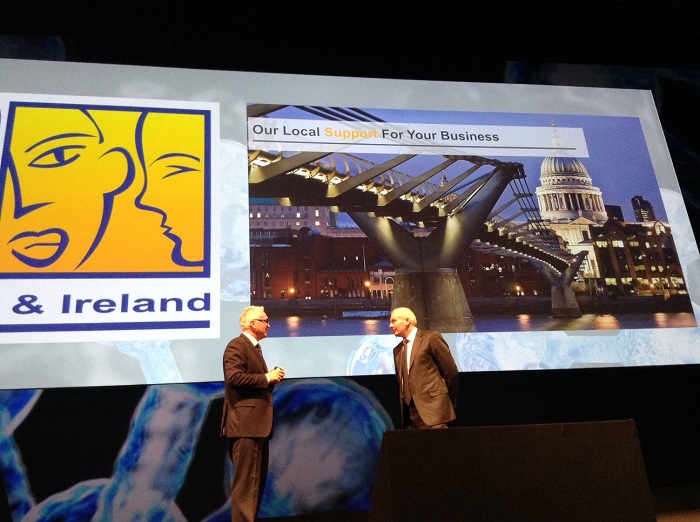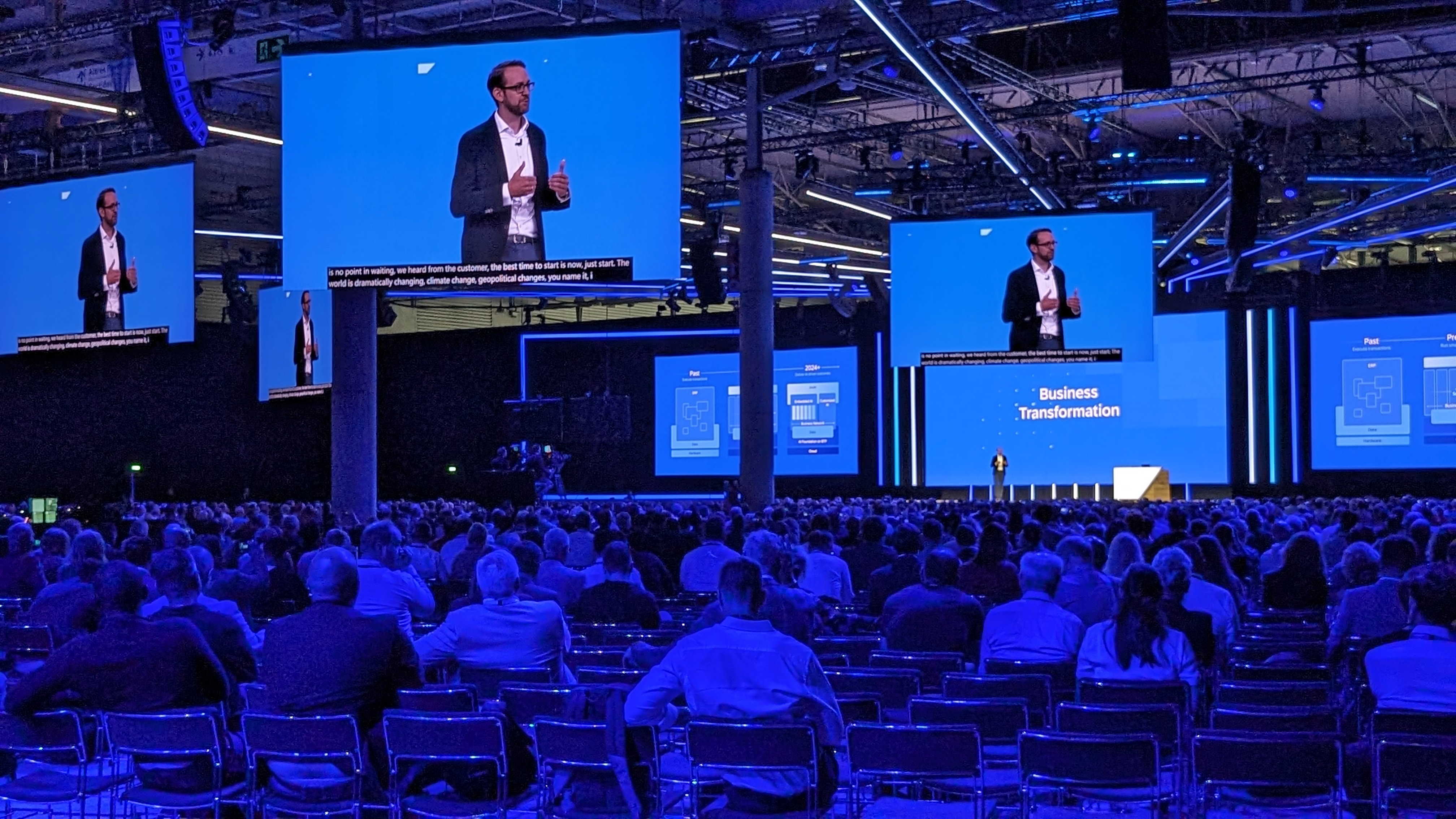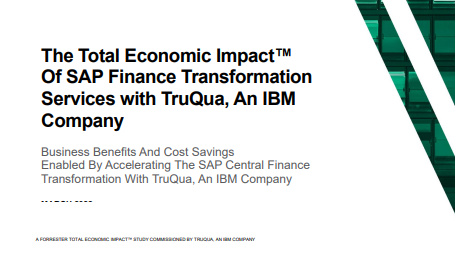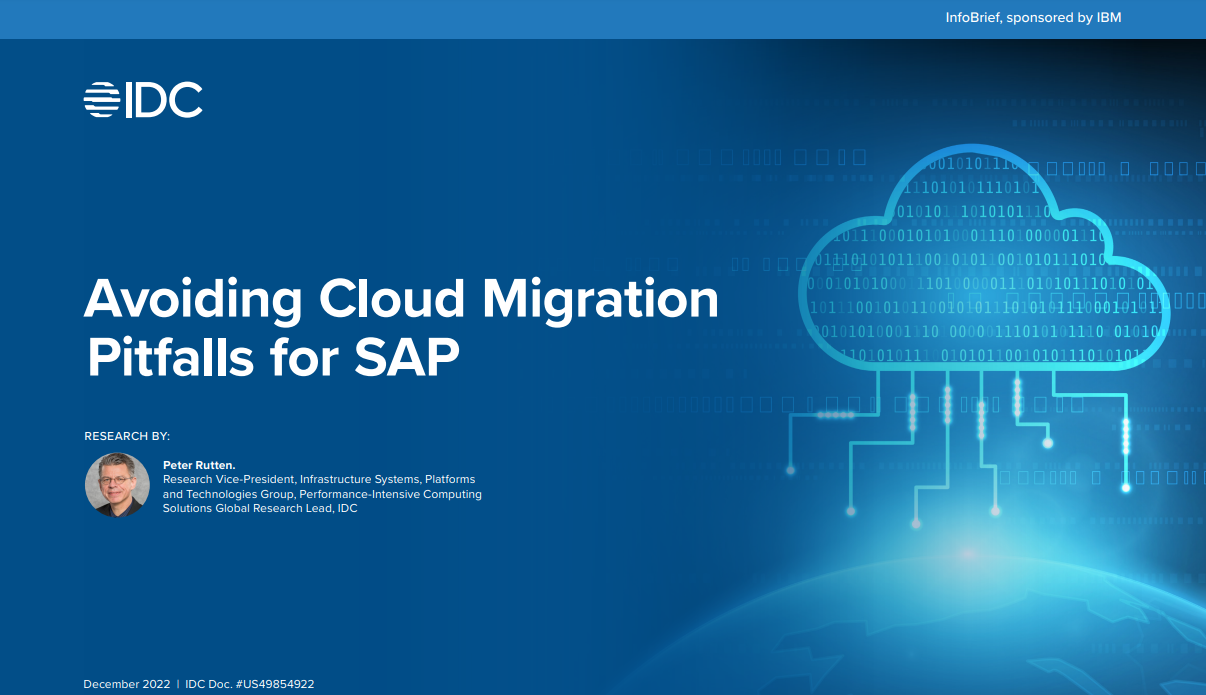‘Pushy’ SAP must listen to customers more
The German database giant is educating staff to better serve users struggling to adopt its latest technology

Account execs hold the key
Those aforementioned sales executives could act as access points to that information, Adams adds.
"If they don't have the answers themselves they can certainly be a point of contact for you as a customer. If they can't get those answers then what's their relevance?" he asks.
SAP's Darbyshire is clear on the benefits of SAP's HANA-based technologies, but is keen for users to adopt them on their own terms.
"We would like them to move to it ultimately, but at a pace that's comfortable to them. I wouldn't like to think that we're trying to push it down their throats as technology for technology's sake," he explains.
"You've got to consume technology at your own pace."
Figures revealed at the conference show that 4,100 customers now use the HANA platform, with 7,100 startups developing solutions on it.
Get the ITPro daily newsletter
Sign up today and you will receive a free copy of our Future Focus 2025 report - the leading guidance on AI, cybersecurity and other IT challenges as per 700+ senior executives
And Darbyshire warns that, while customers' technology roadmaps will always be at the mercy of budgets and other factors, they must be prepared to adapt in a fast-changing technology market, saying "adaptability is very important".
United Utilities' Dalton says his company is doing this by changing the way technology deployments are managed.
"In the past SAP has been very much IT-led in our organisation, and very slow to react and understand the drivers," he explains.
"So 12 months ago we established a SAP centre of expertise, and that's to help us move away from major programme deliveries."
He says that large change has been a blocker for smaller change, which gets firms where they want to be more quickly, and avoids large investments that slow innovation and drain IT budgets.
"The intention is to break those major changes up such that we have continuous improvement. Change is small so it stops being a blocker," he concludes.
Promote policies better
Another point raised by the user group is that SAP should promote their own methods of helping custopmers adopt newer technology more widely.
New UK MD, Cormac Watters, walked on stage at the conference on Monday to admit that he hadn't known about SAP's cloud extension policy, which allows customers to switch on-premise licenses for cloud subscriptions free of charge, until he joined the company in October.
He said: "I felt a little bit dumb, but it's not my fault, it's actually SAP's fault for not telling me."
Whether or not that's true, the user group study backs up his own experience, finding that just 10 per cent have used the policy, and 23 per cent found it attractive.
Adams hopes SAP will communicate better with users so they understand what their options are, especially as many are already paying for technology they do not use under enterprise license agreements.
He says: "People just aren't aware of the services, they're not aware of the policies, they're not aware of the good things SAP is doing.
"Getting your customers to use [your technology] is bound to create a win-win situation for both parties and help everyone along that road [towards] adoption of new technology and getting value from what you currently have. We're all paying for them. "
The extent of the challenge to SAP is to a large extent a marketing one. The innovations the German database giant is coming up with are exciting, but customers require more access to experts and other users to justify buying them.
In other cases, they simply need to be made more aware of what is currently on offer under their enterprise license agreements something that sales executives hoping to earn a commission may not be so eager to point out.
Picture: SAP UK&I COO Guy Armstrong (left) with new UK&I MD Cormac Watters
-
 Bigger salaries, more burnout: Is the CISO role in crisis?
Bigger salaries, more burnout: Is the CISO role in crisis?In-depth CISOs are more stressed than ever before – but why is this and what can be done?
By Kate O'Flaherty Published
-
 Cheap cyber crime kits can be bought on the dark web for less than $25
Cheap cyber crime kits can be bought on the dark web for less than $25News Research from NordVPN shows phishing kits are now widely available on the dark web and via messaging apps like Telegram, and are often selling for less than $25.
By Emma Woollacott Published
-
 Digital immaturity is holding back growth in the UK
Digital immaturity is holding back growth in the UKNews Research from SAP shows a lack of digital maturity is holding back enterprise digital transformation goals.
By George Fitzmaurice Published
-
 SAP has found a way to bring us all on the digital transformation journey
SAP has found a way to bring us all on the digital transformation journeyAnalysis From Joule to WalkMe, Sapphire 2024 was all about how generative AI can make everyone’s job that little bit easier – and this is just the start
By Bobby Hellard Published
-
 SAP just appointed its first chief AI officer
SAP just appointed its first chief AI officerNews The company veteran will lead a new SAP business unit dedicated to the growth and progression of its AI offering
By Daniel Todd Published
-
 SAP treads a fine line with restructuring plans amid generative AI push
SAP treads a fine line with restructuring plans amid generative AI pushAnalysis SAP said it plans to integrate generative AI tools heavily within operations, but has been keen to emphasize this won’t equate to mass job cuts
By Ross Kelly Published
-
 FDM Group strikes SAP partnership to train next generation of tech consultants
FDM Group strikes SAP partnership to train next generation of tech consultantsNews New collaboration aims to meet the growing demand for SAP expertise and bridge the wider digital skills gap
By Daniel Todd Published
-
 The Total Economic Impact™ of SAP finance transformation services with TruQua
The Total Economic Impact™ of SAP finance transformation services with TruQuaWhitepaper Business benefits and cost savings enabled by accelerating the SAP central finance transformation
By ITPro Published
-
 Avoiding cloud migration pitfalls for SAP
Avoiding cloud migration pitfalls for SAPWhitepaper Determining the best approach to SAP HANA
By ITPro Published
-
 SAP appoints Ryan Poggi as managing director for UK and Ireland
SAP appoints Ryan Poggi as managing director for UK and IrelandNews The company veteran replaces Michiel Verhoeven to lead the software firm’s business operations in the region
By Daniel Todd Published